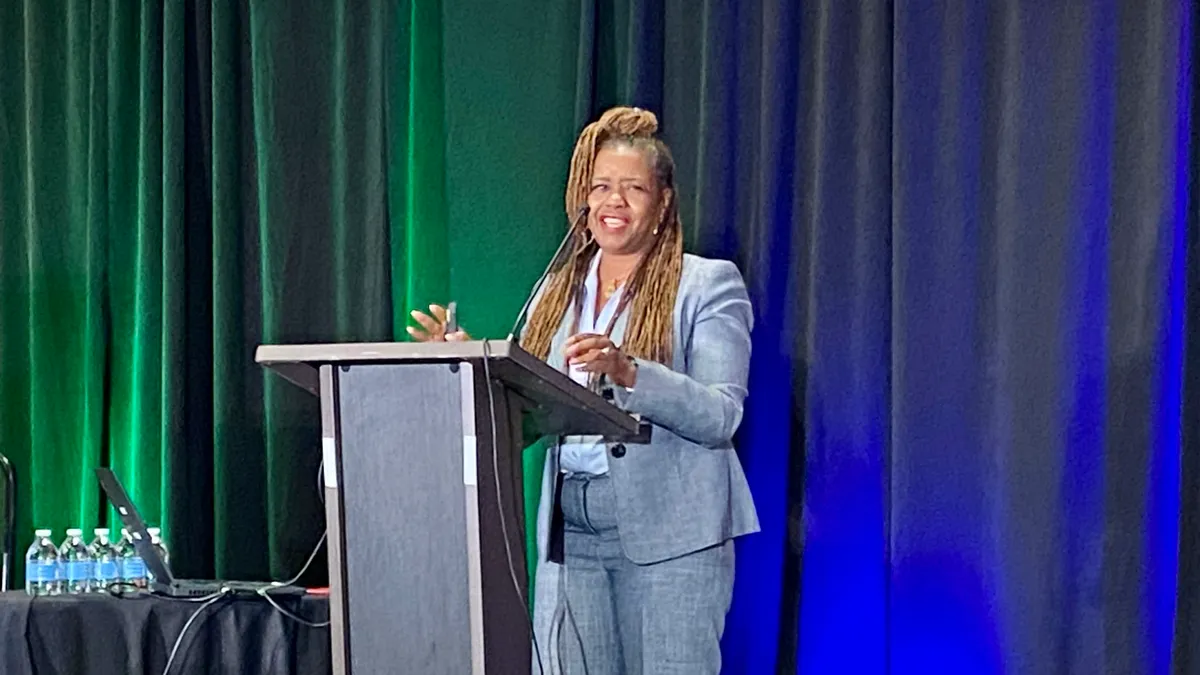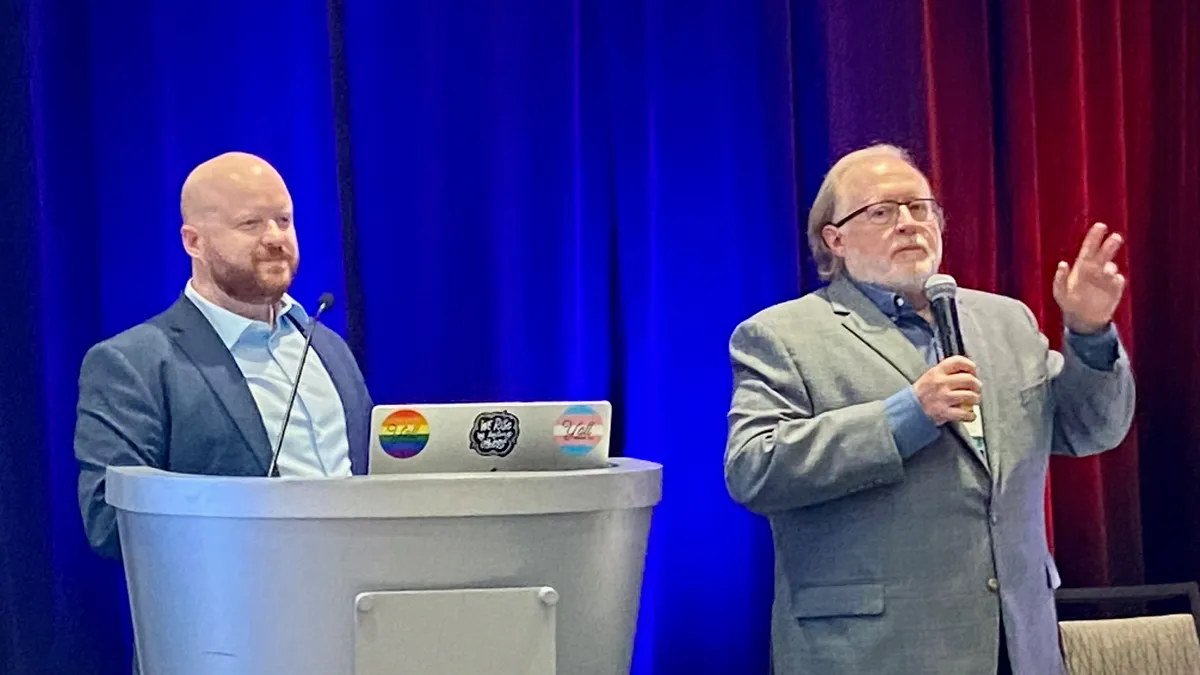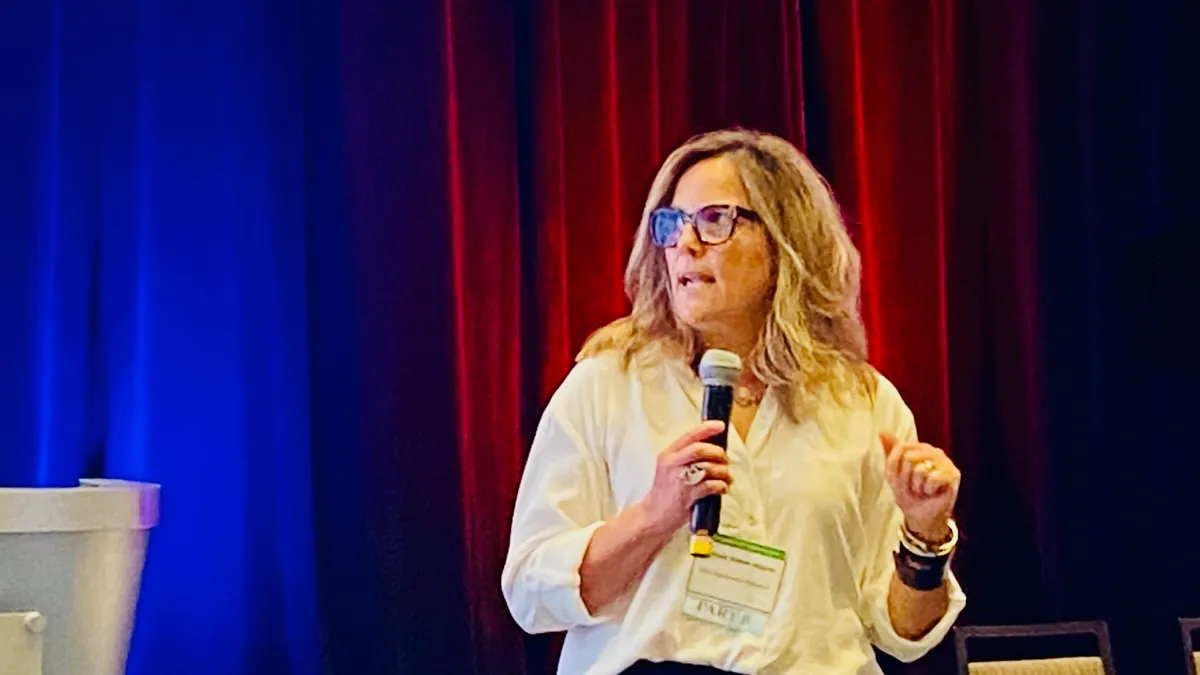ARLINGTON, Va. — The U.S. Department of Education's Office of Special Education Programs announced updated policy guidance Monday that it said will help states with timely identification and correction of district's noncompliance with early intervention services for infants and toddlers and K-12 special education services.
The announcement was made at OSEP's Leadership and Project Directors’ Conference, held in Arlington, Va., and in guidance and a Dear Colleague Letter.
The 37-page guidance, last updated in 2009, is also designed to help protect the rights of children with disabilities and their families under the Individuals with Disabilities Education Act, as well as reaffirm consistent implementation of IDEA across states, according to OSEP.
While districts work most closely with students and their families on everything from identifying a need for special education services to carrying out individualized supports, states are ultimately responsible for ensuring compliance with the federal law.
OSEP Director Valerie Williams, speaking at the conference, urged attendees to be "brave, bold and urgent."
"We're in this field because we care, and we want to make a difference, and we want to have great outcomes," Williams said.
Specifically, OSEP is attempting to clarify that states must:
- Not ignore credible allegations of noncompliance made outside formal monitoring programs.
- Monitor each district and early intervention services programs at least once within the six-year cycle of a State Performance Plan and Annual Performance Report.
- Issue timely findings of noncompliance, which is generally within three months of when the state identifies a delinquency.
- Correct each individual case of noncompliance, in conjunction with districts, early intervention programs and providers.
In the Dear Colleague letter, OSEP said that over the past 15 years, many states have not consistently met IDEA requirements. For example, in each year between 2014 and 2023, an average of only seven state K-12 Part B programs and two state infant and toddler Part C programs have consistently received the “meets requirements” determination.
The announcement will likely please disability rights advocates who have criticized the department for not taking stronger measures against states, districts and schools for failing to follow IDEA rules.
One example that frustrated advocates and parents was the slow response by the Texas Education Agency to allegations, first reported in the Houston Chronicle in 2016, that a state-level monitoring system led districts to put an artificial cap on the number of students found eligible for special education services. This resulted in special education enrollment "significantly declining" in Texas between the 2003-04 and 2016-17 school years, according to the U.S. Education Department.
An Education Department investigation brought findings of noncompliance in 2018 against the state, which agreed to take corrective action. In June 2023, OSEP informed TEA that it had satisfied specific conditions relating to the noncompliance.















